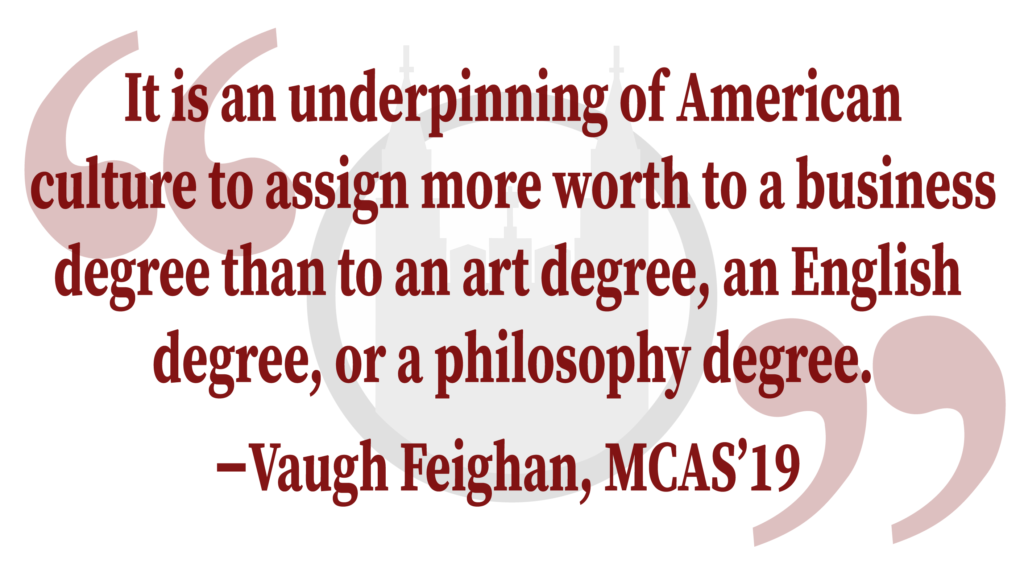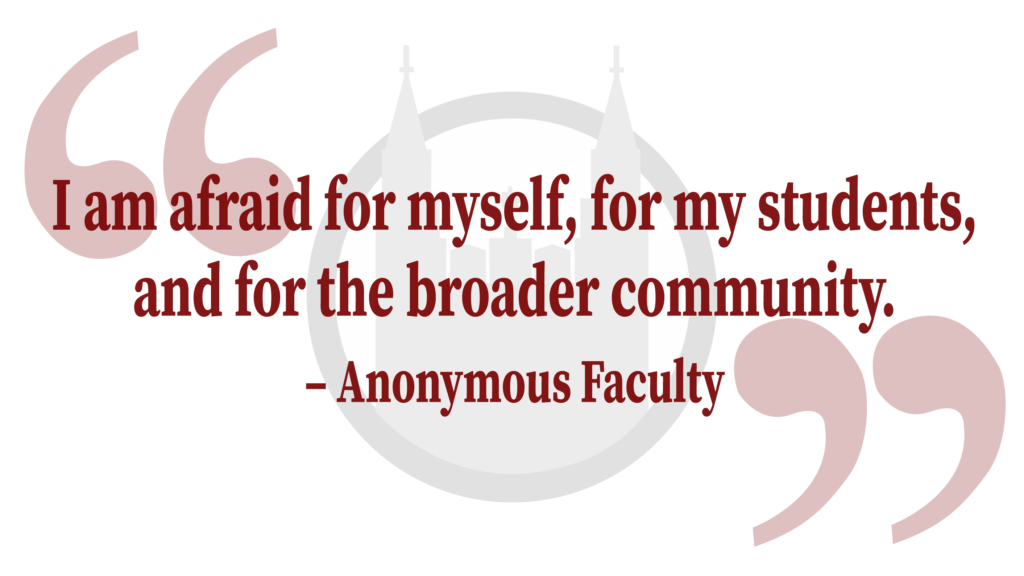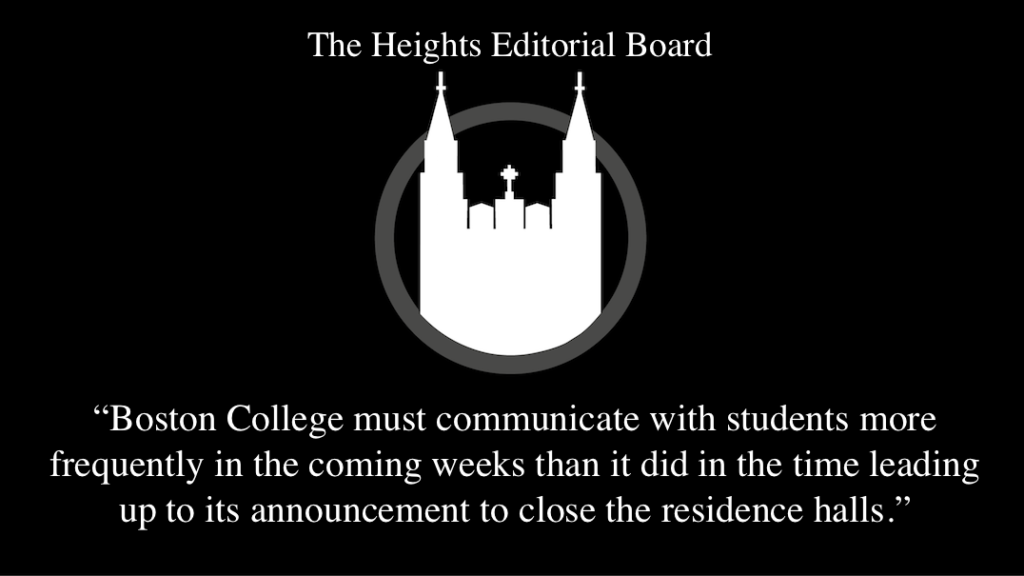My capstone class, “Building a Life” with professor David McMenamin, is discussion-based and incredibly enlightening. We cover many philosophical ideas—relationships, success, the American Dream, money, influence, change, uncertainty, to name a few—and frame them as if we are building a life like we’re building a house.
In a recent session, we spoke about the value of our Boston College education, specifically the value of our degrees. As a double major in Philosophy and Communication, I am well-aware of the general opinion when it comes to the perceived usefulness, or uselessness, of my degrees. While students in the Carroll School of Management (CSOM) secretly scoff at me, intentionally trying to keep a straight face as to not offend me, I still understand the general sentiment.
However, I believe that this type of interaction—and association of degree type with possible future success—is uniquely American. It is an underpinning of American culture to assign more worth to a business degree than to an art degree, an English degree, or a philosophy degree. It is easy, a type of decision heuristic, for us to use salaries and numbers to assign worth to a degree, and then to project that worth upon the person studying it.
There is an expectation that when the beige envelope arrives at a student’s door with the CSOM seal, they will succeed. They will be happy. They will have to work hard when they are in school, but because they will obtain a business degree, they will live a life full of opportunity and happiness. I am not arguing that this is wrong. Every single person that I know in CSOM is an incredibly hard-working individual that is motivated, determined, and dedicated to building a life that they can see themselves living.
My argument is that CSOM is not the only place where one can find that worth. The value of a degree from BC is worth the same, regardless if you graduate from CSOM, the Connell School of Nursing, Morrissey College of Arts and Sciences, or Lynch School of Education. Yet, the opposite perception is prominent at both BC and in American culture. I am calling on all of you reading this right now to be cognizant of the structures that form the walls of your life. We must remain aware of the social underpinnings that mold together to create our social foundations. Each of us must push against the ceiling that we find ourselves under from time to time. Ceilings obstruct a good view of the sky.
I am asking that, whether you have a double major in finance and information systems or a single English major, each of you understands that every person you see walking through the Quad is worth something, and the type of degree that they are pursuing is not indicative of that person’s worth. I don’t mean for this to be a motivational article. In the past four years, having transferred out of CSOM and into MCAS, I saw how people reevaluated my future. While I would argue that this behavior is a natural part of our socially-constructed world, it does not have to be as prominent as it is on BC’s campus or in society’s rhetoric.
I hope that, whoever you may be, you’ve found worth inside yourself. I hope you scoffed at this article, not because you disagree with me, but because what I am saying makes perfect sense and this is a waste of your time. What each of us have to offer to this world is neither constrained by a degree nor is it emphasized with a degree. In the next few hours, the next day, the next week, I hope that each of you think of what I am arguing in this and act.
In my capstone class, one of the women that was sitting next to me said that she wanted to move down to Nashville and try her hand at singing, but she didn’t want to waste her business degree. What a weird thing to say, I thought to myself. Not only would she be doing something she loved, but she would be able to use her degree, and the worth derived by her (and only her), to find a niche in which she could excel. I hope you do the same.
Featured Graphic by Ally Mozeliak / Graphics Editor



















